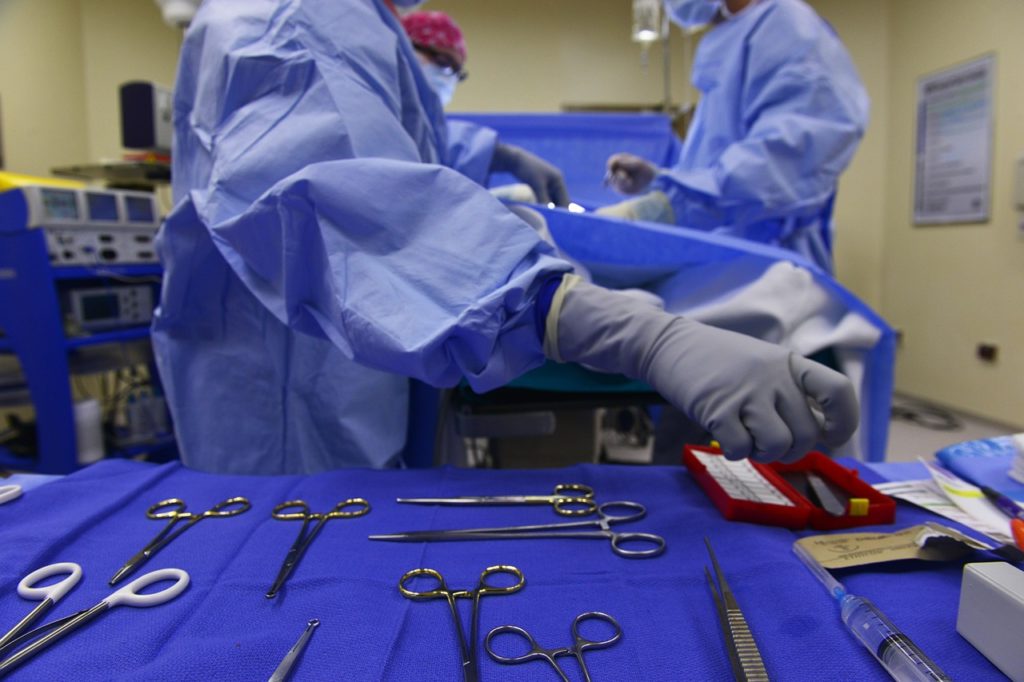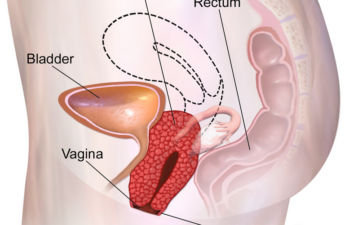
From UW School of Medicine
Eating well and exercising before surgery can improve surgical outcomes in the context of standardized care pathways, even among patients who have extremely serious procedures, according to a study by UW Medicine scientists published Dec. 28, 2018 in PLOS ONE.
“I tell my patients, ‘This is your job. This is something you can do to take control.’ We know that if people become more active before surgery, they recover faster after surgery. They go home sooner. They get back to work sooner,” said the senior author of the paper, Venu G. Pillarisetty, associate professor of surgery at the University of Washington School of Medicine and medical director for continuous performance improvement at the Seattle Cancer Care Alliance.
A standardized care pathway is a consistent protocol used to care for patients with a particular condition or who are undergoing a particular procedure. The study involved patients who had a major operation called a pancreaticoduodenectomy, which is typically performed for pancreatic cancer.
The operation is so intense that it’s common for someone to recover at first in the Intensive Care Unit. Pillarisetty and the study’s first author, Sara K. Daniel, also from the Department of Surgery, chose to measure what percentages of patients were discharged within five days after the surgery.
The scientists compared a group of 81 patients who had the surgery before a new program started, and then a pool of 64 patients who participated in the program at UW Medical Center. The program was put together by a wide group of experts, including physicians, nurses, physical therapists and nutrition and pharmacy specialists.
What researchers found is that 64 percent of patients who were encouraged to consume specific drinks, to walks two miles a day, and other such strategies, were discharged within five days, as compared to 36 percent of patients before the program was instituted. That suggests that many more patients were able to get back home and on their feet sooner because they participated in the program.
In other words: Got a surgery coming up? Get out and walk. Your surgeon wants you fit.
“Instead of calling it ‘rehab,’ call it ‘pre-hab,’” Pillarisetty said.
“I ask patients to work up to walking two miles a day before their surgery. That’s because if I want my patients walking after a surgery, and I do, they obviously need to be able to walk before surgery,” Pillarisetty said. A recent story in the Washington Postcharacterized presurgical fitness as a trend, but it wasn’t news to Pillarisetty and other UW Medicine clinicians.
“I started telling patients this when I first came here nine years ago. I eventually came up with two miles a day because it’s a reasonable target and sounds good. Most people can do two miles, especially if it’s not all at once,” Pillarisetty said. In fact, the UW School of Medicine developed the Strong for Surgery program that has since been adopted by the American College of Surgeons.
Preparing for surgery is not just about exercise. It’s also about eating well and not smoking, among other considerations.
“When I operate on you – and it doesn’t matter what I do, how big the operation or how small – it’s going to tax your cardiovascular system and the rest of your body,” Pillarisetty said. “It’s going to put you on your back, and that means your body’s fitness will diminish.
“The stronger you are before an operation, the stronger you will be after the operation.”


